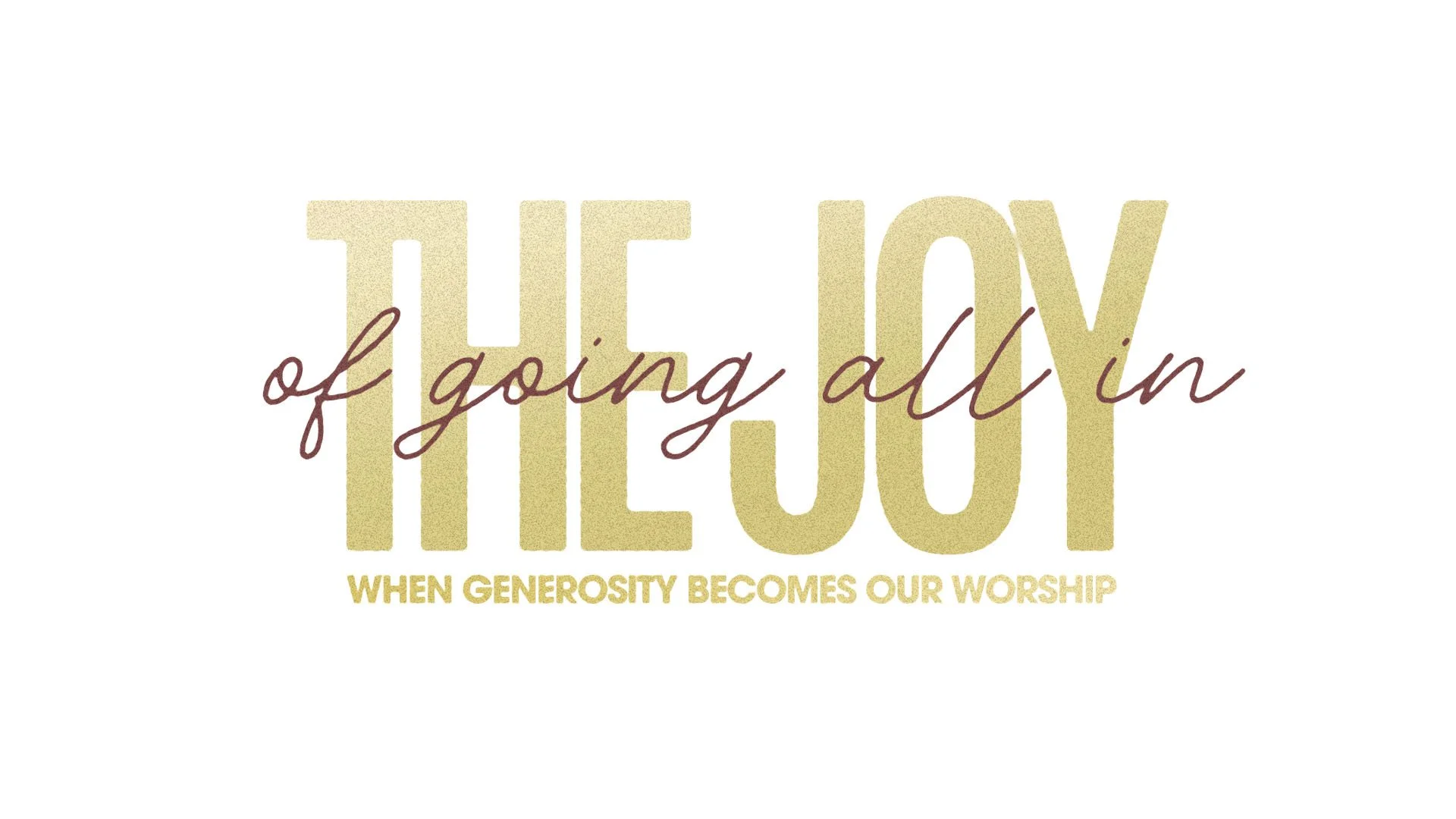The Joy of Going All In
When Generosity Becomes Our Worship
Generosity is not a line item or an annual campaign theme; it is worship that costs something and reshapes the heart, much like a song of praise that moves from lips to lifestyle. Scripture frames giving as an offering that honors God, where the sacrifice itself becomes worship, turning everyday stewardship into a declaration of allegiance to Christ rather than to comfort, control, or cultural expectations of “more”. Viewed this way, generosity shifts from obligation to identity—less about hitting a target and more about becoming a people whose default posture is open-handed because Christ has already met the deepest need. When churches practice this identity together, the spiritual temperature rises: giving ceases to be a budget plug and becomes a lived theology that witnesses to God’s sufficiency in a restless age.
This identity also requires reframing the stories believed about money and meaning, because consumerism is not just an economic engine; it’s a formation engine discipling desires through comparison and endless appetite. The way of Jesus interrupts that formation by telling a truer story: fulfillment is not one purchase away, and “enough” is not a ceiling to resent but a launchpad for joy, peace, and purposeful generosity that blesses others and glorifies God. In practice, this means asking different questions—moving from “How much must I keep?” to “How much do I get to give?”—and trusting the Spirit to lead concrete decisions, budgets, and habits in ways that align with kingdom priorities.
The Secret of Contentment
Biblical contentment is learned, not luck; it is the resilient capacity to say Christ is sufficient in both plenty and want, and it empowers a steady, courageous generosity that does not wait for ideal conditions to be faithful. When people grasp that God has already provided enough in Christ, abundance stops meaning “more stuff” and starts meaning “more good works,” where material resources serve spiritual purposes without mastering the heart that stewards them. This contentment turns ceilings into floors: what once felt like the upper limit of generosity becomes the new baseline, because confidence in God’s care loosens fear’s grip and frees resources for mission and mercy.
Abundance That Leads to Action
The early church embodies this dynamic powerfully: the Spirit didn’t only produce signs and wonders; He rewired relationships to possessions so profoundly that “mine” became “ours,” and needs were met as a communal reflex of gospel love. This wasn’t performative philanthropy; it was a Spirit-born protest against scarcity and self-preservation, a living picture of the kingdom where people mattered more than portfolios and where worship reordered wealth toward the common good. Such contentment is active, not passive—it resists the undertow of “never enough,” cultivates daily gratitude, simplifies to create margin, and chooses sacrificial generosity that bears the imprint of the cross rather than the convenience of leftovers.
Money flows to what the heart worships, revealing who or what rules inward priorities; when Jesus is Lord, money becomes a tool for God’s mission rather than a god that demands anxious allegiance.
Instead of asking “How much do I have to keep?” a generous disciple asks, “How much do I get to give?” seeking the Spirit’s guidance to turn financial habits into worshipful, purpose-driven stewardship.
Four Practices for a Generous Life
Expose the lie
Name consumerism as a spiritual trap aimed at your soul, refuse its comparisons and cravings, and wake up to how it quietly empties joy even as it promises more.
Surrender to Jesus
Submit every unyielded corner of life to Christ’s way, learning contentment in plenty and in want, and letting His strength shape both desire and daily decisions.
Resist the pull
Confess specific addictions to “never enough,” practice daily gratitude, simplify possessions by giving things away, and set intentional boundaries that turn ceilings into floors for generosity.
Reclaim desire
Lean into God’s abundance as sons and daughters, rejecting scarcity mindsets and letting identity in Christ ignite a joyful eagerness to resource God’s work.
From Hearing to Doing
The goal is not to admire generosity but to act, translating conviction into commitments that align hearts, habits, and resources with God’s vision for the church and the city in the season ahead.

